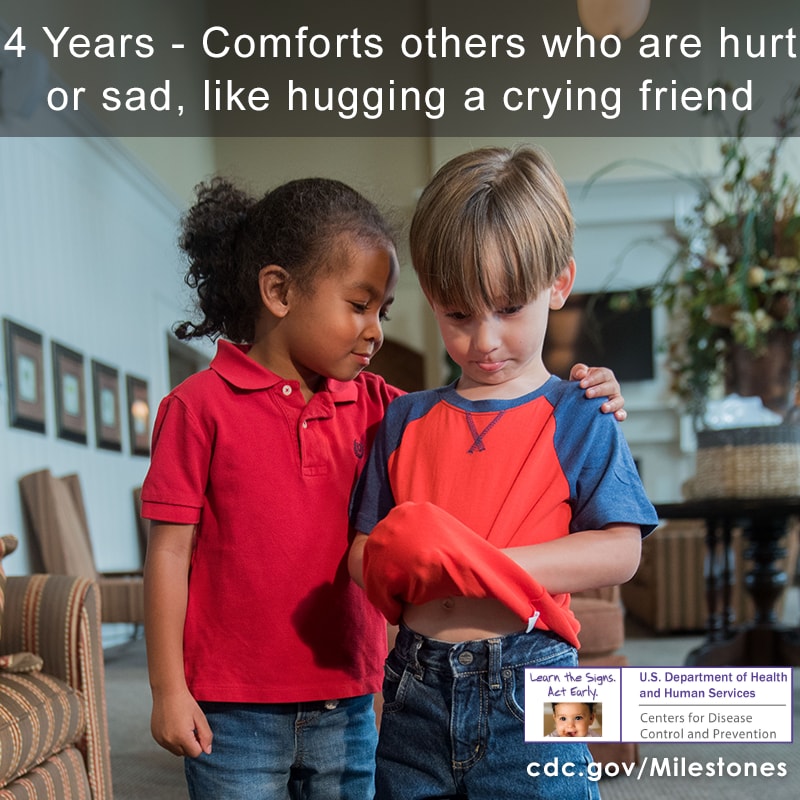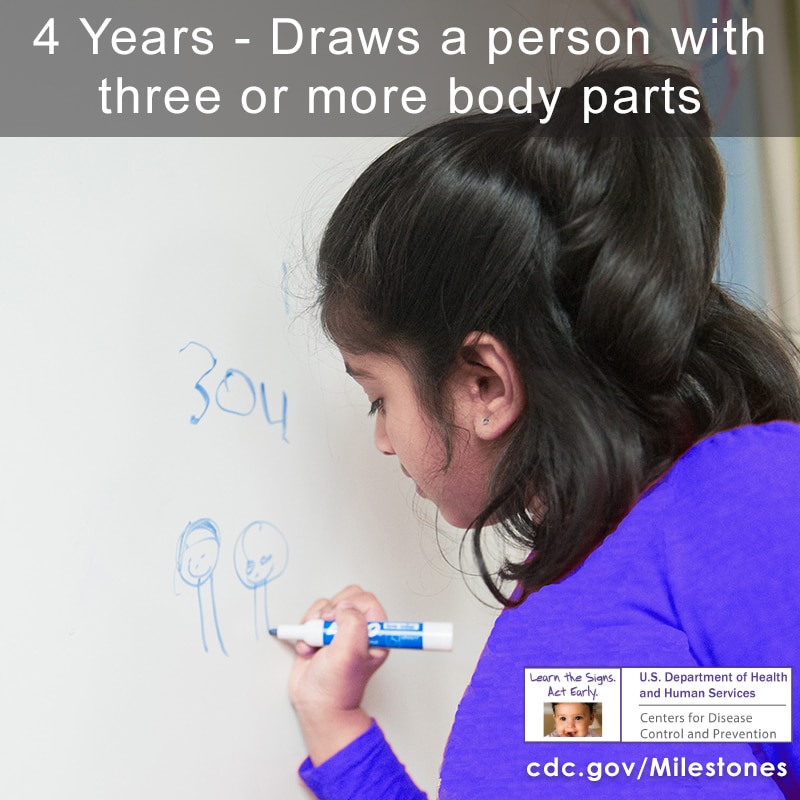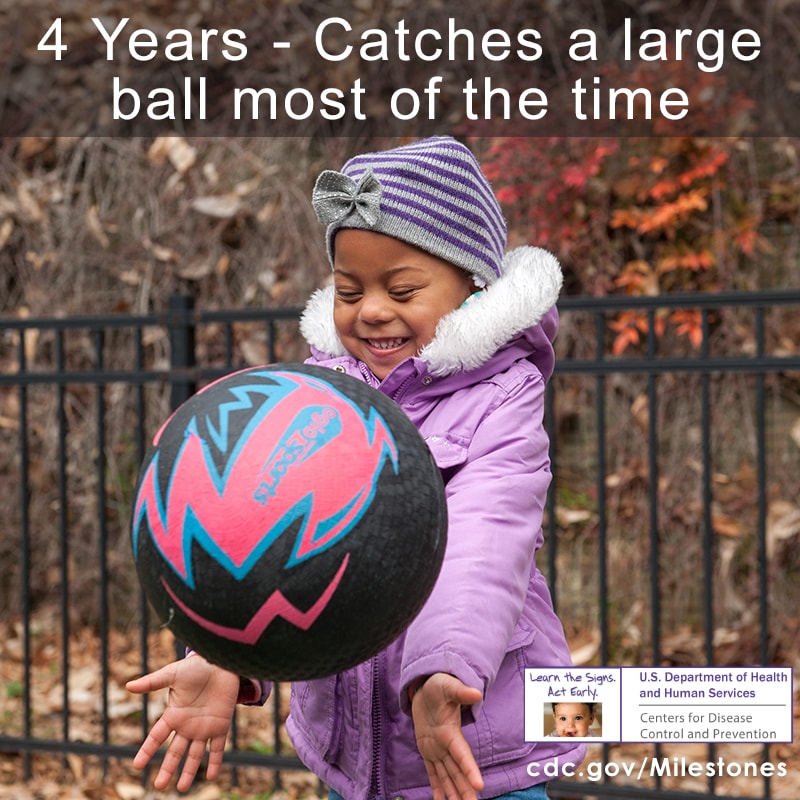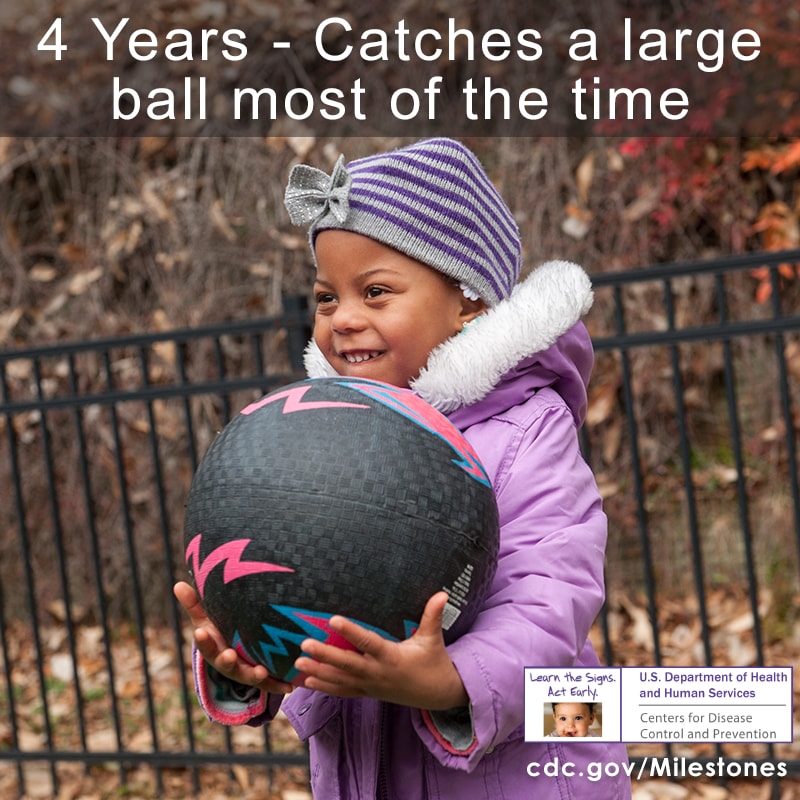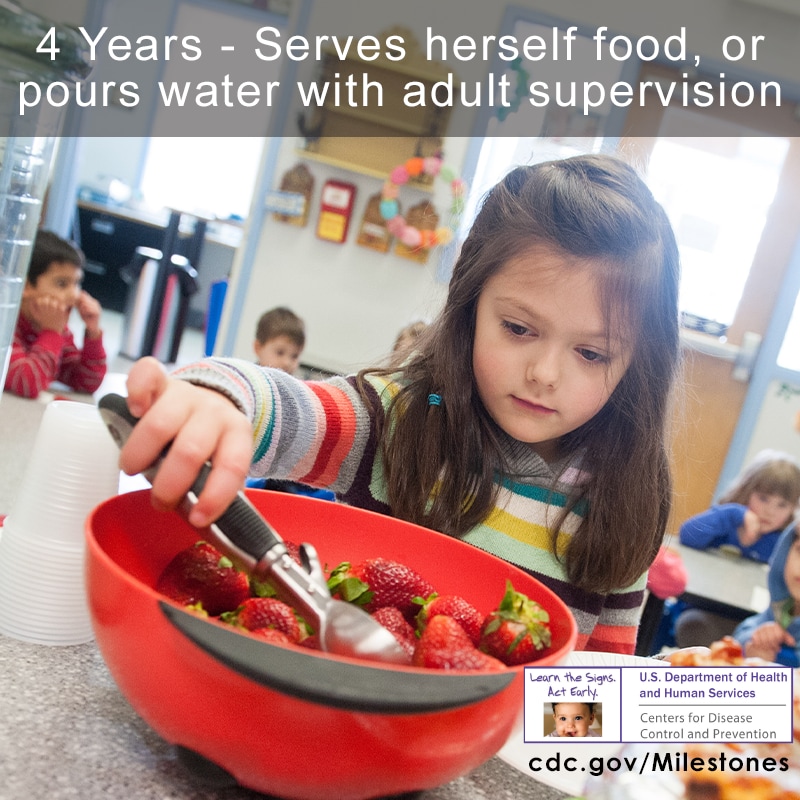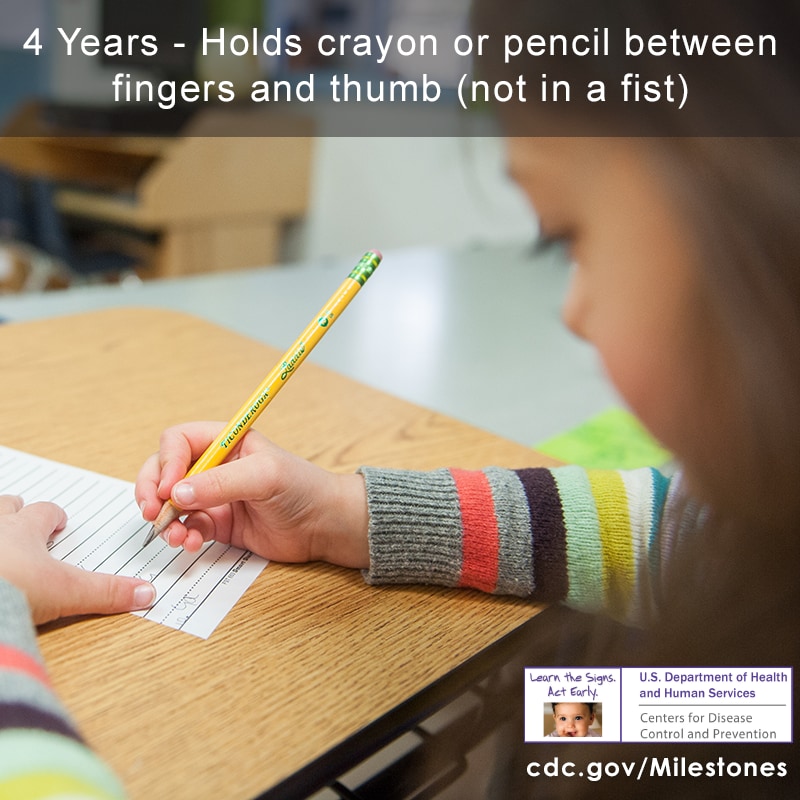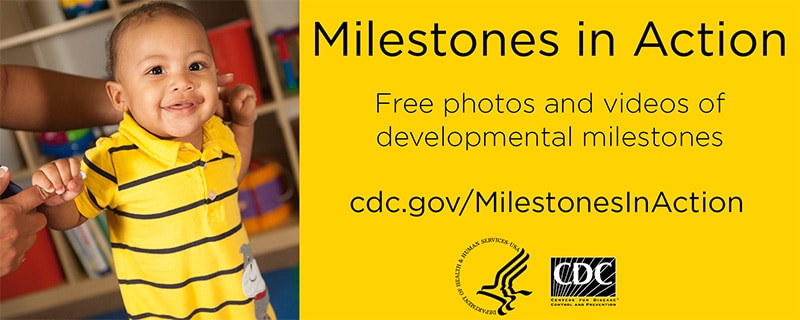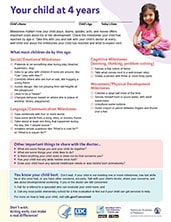Important Milestones: Your Child By Four Years
In 2022, CDC’s milestones and parent tips were updated and checklist for ages 15 and 30 months were added. For more information about the CDC’s developmental milestones, please review the Pediatrics journal article and these important key points.
How your child plays, learns, speaks, acts, and moves offers important clues about your child’s development. Developmental milestones are things most children (75% or more) can do by a certain age.
Check the milestones your child has reached by 4 years by completing a checklist with CDC’s free Milestone Tracker mobile app, for iOS and Android devices, using the Digital Online Checklist, or by printing the checklist [755 KB, 2 Pages, Print Only] below.
“Learn the Signs. Act Early.” materials are not a substitute for standardized, validated developmental screening tools.
What most children do by this age:
Social/Emotional Milestones
- Pretends to be something else during play (teacher, superhero, dog)
- Asks to go play with children if none are around, like “Can I play with Alex?”
- Comforts others who are hurt or sad, like hugging a crying friend

- Avoids danger, like not jumping from tall heights at the playground
- Likes to be a “helper”
- Changes behavior based on where she is (place of worship, library, playground)
Language/Communication Milestones
- Says sentences with four or more words
- Says some words from a song, story, or nursery rhyme
- Talks about at least one thing that happened during her day, like “I played soccer.”
- Answers simple questions like “What is a coat for?” or “What is a crayon for?”
Cognitive Milestones (learning, thinking, problem-solving)
- Names a few colors of items
- Tells what comes next in a well-known story
- Draws a person with three or more body parts

Movement/Physical Development Milestones
Other important things to share with the doctor…
- What are some things you and your baby do together?
- What are some things your baby likes to do?
- Is there anything your baby does or does not do that concerns you?
- Has your baby lost any skills he/she once had?
- Does your baby have any special healthcare needs or was he/she born prematurely?
Concerned About Your Child’s Development?
Act Early.
You know your child best. Don’t wait. If your child is not meeting one or more milestones, has lost skills he or she once had, or you have other concerns, act early. Talk with your child’s doctor, share your concerns, and ask about developmental screening.
If you or the doctor are still concerned:
- Ask for a referral to a specialist who can evaluate your child more; and
- Call your state or territory’s early intervention program to find out if your child can get services to help. Learn more and find the number at cdc.gov/FindEI.
For more on how to help your child, visit cdc.gov/Concerned.
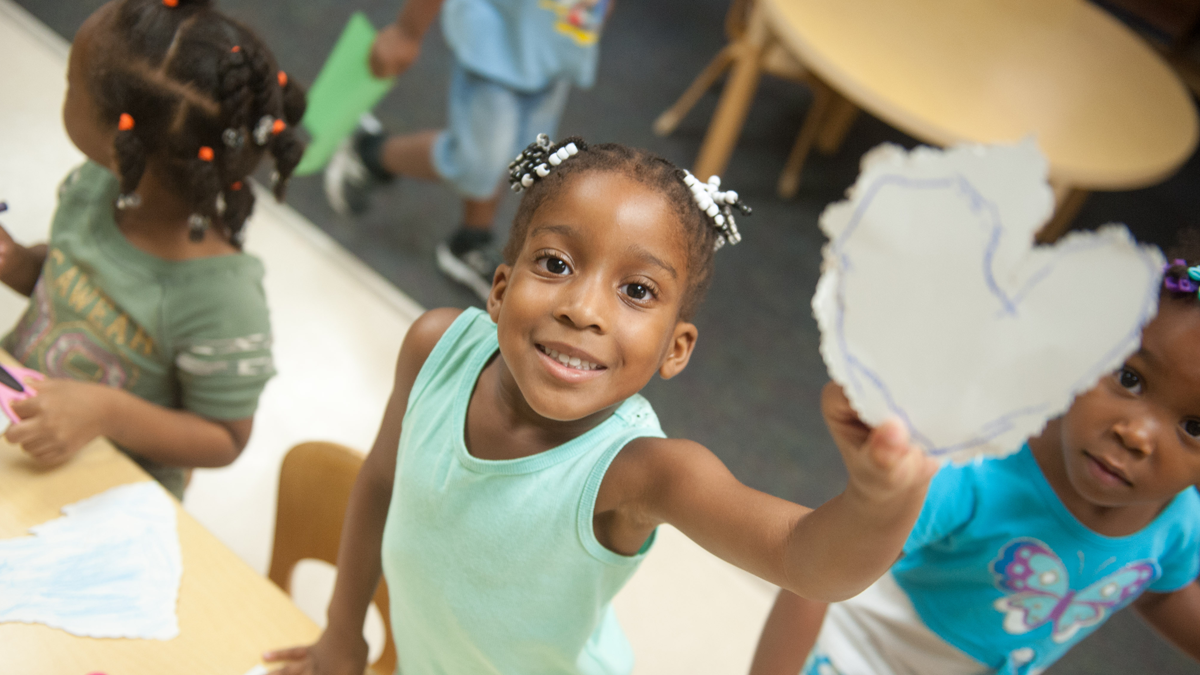
As your child’s first teacher, you can help his or her learning and brain development. Try these simple tips and activities in a safe way. Talk with your child’s doctor and teachers if you have questions or for more ideas on how to help your child’s development.
- Help your child be ready for new places and meeting new people. For example, you can read stories or role play (pretend play) to help him be comfortable.
- Read with your child. Ask him what’s happening in the story and what he thinks might happen next.
- Help your child learn about colors, shapes, and sizes. For example, ask the color, shapes, and size of things she sees during the day.
Special acknowledgments to the subject matter experts and others who contributed to the review of data and selection of developmental milestones, especially Paul H. Lipkin, MD, Michelle M. Macias, MD, Julie F. Pajek, PhD, Judith S. Shaw, EdD, MPH, RN, Karnesha Slaughter, MPH, Jane K. Squires, PhD, Toni M. Whitaker, MD, Lisa D. Wiggins, PhD, and Jennifer M. Zubler, MD.
Sincere gratitude to Natalia Benza, MD and José O. Rodríguez, MD, MBA for their thoughtful review of the Spanish-language translation of these milestones.
